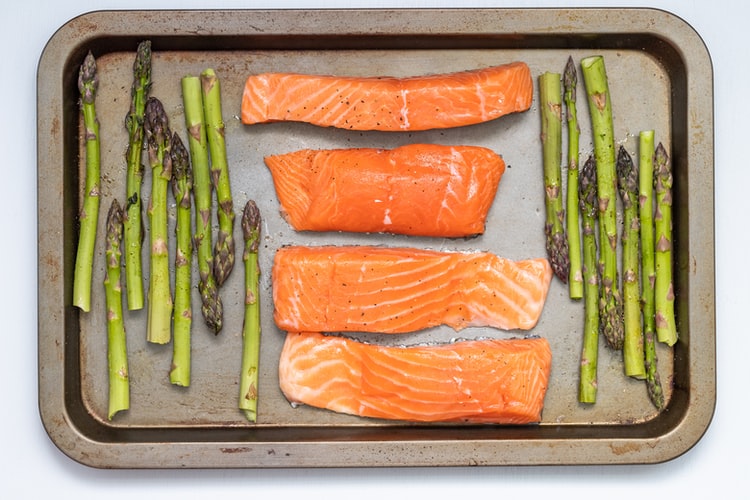There are many diets for weight loss. Some focus on reducing appetite, while others limit calories, carbohydrates or fats. Since everyone claims to be superior, it’s hard to know which one is worth trying. It’s true that no diet is best for everyone – and what works for you may not work for anyone else. This article will help you learn more about each weight loss diet and what science says about them.
Paleo diet
The Paleo diet claims that you should eat the same food that your ancestors hunters and gatherers ate before agriculture developed. The theory says that most modern diseases can be associated with the Western diet and the consumption of cereals, dairy products and processed foods. Although it is debatable whether this diet really provides the same food that your ancestors ate, it is associated with several impressive health benefits. The Paleo diet emphasizes whole foods, pure protein, vegetables, fruits, nuts and seeds. Some more flexible versions of the paleo diet also allow dairy products such as cheese and butter, as well as sweet potatoes. Several studies have shown that a paleo diet can lead to significant weight loss and a reduction in waist size. The paleo diet automatically eats much less carbohydrates, more protein and 300-900 fewer calories per day. Diet appears to be effective in reducing risk factors for heart disease, such as cholesterol, blood sugar, blood triglycerides, and blood pressure.

Vegan diet
The vegan diet restricts all animal products for ethical, environmental or health reasons. Veganism is also associated with resistance to exploitation and cruelty to animals. Veganism is the strictest form of vegetarianism. In addition to eliminating meat, it eliminates dairy products, eggs and products of animal origin, such as gelatin, honey, whey, casein and some forms of vitamin D3. A vegan diet seems to be very effective in helping people lose weight – often without counting calories – because very little fat and high fiber content can make you feel fuller for longer. The vegan diet is associated with lower body weight and body mass index (BMI) compared to other diets. One 18-week study found that people on a vegan diet lost 9.3 pounds more than those on a control diet. The vegan group was allowed to eat until they were full, but the controlled group had to limit calories.

However, a high-calorie vegan diet is not more effective for weight loss than other diets. Losing weight on a vegan diet is primarily associated with reduced calorie intake. Dietary herbs are associated with a reduced risk of heart disease, type 2 diabetes and premature death. Limiting processed meat can also reduce the risk of Alzheimer’s disease and dying from heart disease or cancer. Since a vegan diet completely eliminates animal foods, it may have few nutrients, including vitamin B12, vitamin D, iodine, iron, calcium, zinc, and omega-3 fatty acids. The vegan diet excludes all animal products. They can cause weight loss due to lower calorie intake, and at the same time reduce the risk of several diseases.
A low carb diet
A low carb diet has been popular for decades – especially for weight loss. There are several types of diets with a low percentage of carbohydrates, but all of them include limiting the intake of carbohydrates to 20-150 grams per day. The primary goal of the diet is to force the body to use more fat for fuel, instead of using carbohydrates as the main source of energy. A low-carb diet emphasizes unlimited amounts of protein and fat while severely limiting carbohydrate intake. When carbohydrate intake is very low, fatty acids are transferred to your blood and transported to the liver where some of them are converted into ketones.

Then your body can use fatty acids and ketones in the absence of carbohydrates as its primary source of energy. Numerous studies show that diets with a low percentage of carbohydrates are extremely useful for weight loss, especially in overweight and obese people. They seem to be very effective in reducing dangerous fat deposits on the stomach, which can settle around your organs. People who are on a diet low in carbohydrates usually reach a condition called ketosis. Many studies have found that a ketogenic diet leads to more weight loss compared to a low-calorie, low-fat diet. A low-carbohydrate diet tends to reduce appetite and make you feel less hungry, leading to an automatic reduction in calorie intake. A low-carbohydrate diet can benefit from many major disease risk factors, such as blood triglycerides, cholesterol levels, blood sugar levels, insulin levels, and blood pressure.
A low carb diet is not for everyone. Some feel great on them, while others feel bad. Some people may have an increase in “bad” LDL cholesterol. In extremely rare cases, a diet low in carbohydrates can cause a serious condition called non-diabetic ketoacidosis. This condition seems to be more common in breastfeeding mothers and can be fatal if left untreated. However, a diet with a limited number of carbohydrates is safe for most people. A low-carb diet severely limits carbohydrate intake and pushes your body to use fat for fuel. They help to lose weight and are associated with many other health benefits.
Low fat diet
An ultra-low fat diet limits your fat intake to less than 10% of your daily calories. A low-fat diet provides about 30% of calories as fat. Studies reveal that this diet is ineffective for weight loss in the long run. Proponents of a low-fat diet claim that a traditional low-fat diet does not contain enough fat and that fat intake must remain below 10% of total calories to produce health benefits and weight loss. A low-fat diet contains 10% or less of calories from fat. The diet is mostly plant-based and contains a limited intake of animal products. That’s why it has more carbohydrates – about 80% calories – and less protein – with 10% calories. This diet has been shown to be very successful in losing weight in obese individuals. In one study, obese people lost an average of 63 kg on a diet that was extremely low in fat.

Another 8-week study with a diet containing 7–14% fat showed an average weight loss of 6.7 kg. A low-fat diet can improve several risk factors for heart disease, including high blood pressure, high cholesterol, and markers of inflammation. Surprisingly, this high-carbohydrate diet can also lead to significant improvements in type 2 diabetes. It can slow the progression of multiple sclerosis – an autoimmune disease that affects your brain, spinal cord and optic nerves in your eyes. Limiting fat can cause long-term problems, because fat plays many important roles in your body. These include helping to build cell membranes and hormones, as well as helping the body absorb fat-soluble vitamins. Moreover, a low-fat diet limits the intake of many healthy foods, they lack variety and it is difficult to stick to it.
Atkins diet
The Atkins diet is the most famous diet with a reduced percentage of carbohydrates. Its proponents insist that you can lose pounds by eating as much protein and fat as you want, as long as you avoid carbohydrates. The main reason why low carb diets are so effective for weight loss is that they reduce your appetite. That’s why you eat fewer calories without having to think about it. The Atkins diet is divided into four phases. It begins with an induction phase, during which you eat less than 20 grams of carbohydrates a day for two weeks. Other stages include slowly returning healthy carbohydrates to your diet as you approach your target weight. The Atkins diet has been extensively studied and has been found to lead to faster weight loss than a low-fat diet. A low carb diet very useful for weight loss. They are especially successful in reducing belly fat. A low-carbohydrate diet, such as the Atkins diet, can reduce many risk factors for the disease, including blood triglycerides, cholesterol, blood sugar, insulin, and blood pressure.

Compared to other weight loss diets, low carb diets also improve blood sugar, “good” HDL cholesterol, triglycerides and other health indicators. Like other diets with very few carbohydrates, the Atkins diet is safe and healthy for most people, but can cause problems in rare cases. It is great for weight loss, but it also has benefits for many other disease risk factors.
Intermittent fasting
Achieving a continuous cycle is done by your body between the period of fasting and eating. Instead of limiting the foods you eat, it controls when you eat them. Therefore, it can be understood as more of a diet than a diet. The most popular ways to perform occasional fasts are:
- Method 16/8: involves skipping breakfast and limiting your daily meal period to eight hours, after which fast for the remaining 16 hours of the day.
- Eat-stop-eat method: includes 24-hour fasts once or twice a week on non-consecutive days.
- Diet 5: 2: On two consecutive days a week, limit your intake to 500-600 calories. You do not limit your intake for the remaining five days.
- Warrior Diet: Eat small amounts of raw fruits and vegetables during the day and one meal at night.
Intermittent fasting is usually used for weight loss because it leads to relatively easy calorie restriction. This can make you eat fewer calories until you make up for it by eating a lot more during the meal period. Occasional starvation is very successful for weight loss. It has been shown to cause weight loss of 3-8% in a period of 3-4 weeks, which is a lot compared to most weight loss diets.
In addition to causing less muscle loss than the standard calorie limit, it can increase your metabolic rate by 3.6-14% in the short term. Occasional fasting can lower cholesterol, blood triglyceride and blood sugar levels.In addition, intermittent fasting is associated with increased levels of human growth hormone (HGH), improved insulin sensitivity, improved cell repair, and altered gene expression. Animal studies also suggest that it could help new brain cells grow, prolong life and protect against Alzheimer’s disease and cancer. Although occasional fasting is safe for healthy people, it does not suit everyone. Some studies note that it is not as beneficial for women as it is for men.

In addition, some people should avoid fasting, including those who are sensitive to low blood sugar, pregnant women, breastfeeding mothers, teenagers, children and people who are malnourished, underweight or lack nutrients. Intermittent fasting allows your body cycle between fasting and eating. It is very effective for weight loss and is associated with numerous health benefits. You can read more about Intermittent Fasting in the blogs section of the app.
There is no perfect diet for weight loss. Different diets work for different people, and you should choose the one that suits your lifestyle and taste. The best diet for you is one that you can stick to in the long run. In the application, you have various diet plans in your diet programs (vegan, low carb, keto …) that can make your diet easier, as well as the exercise program itself.
